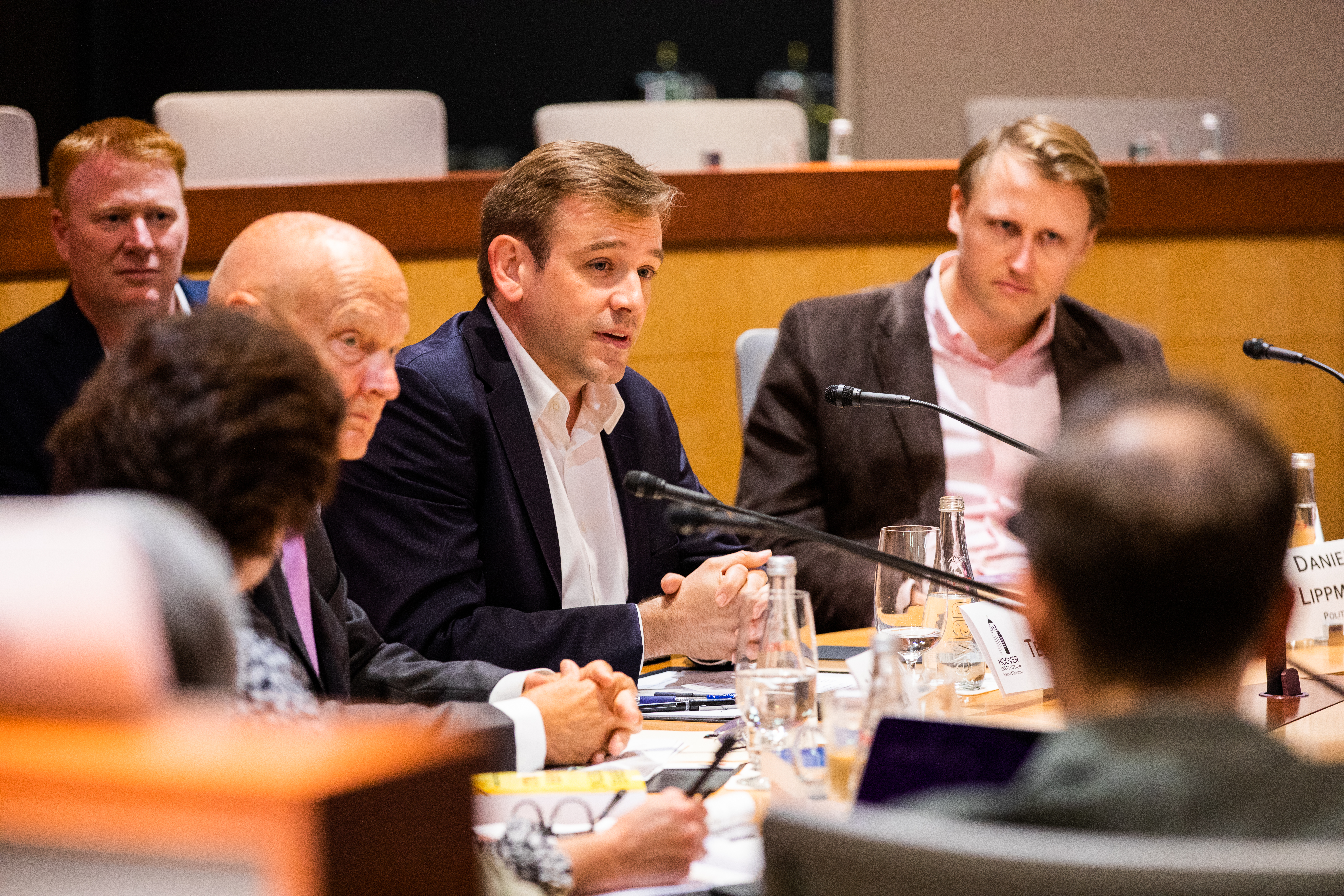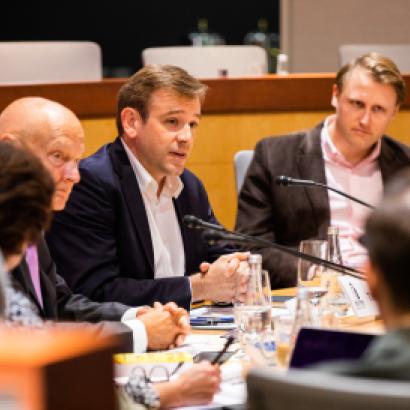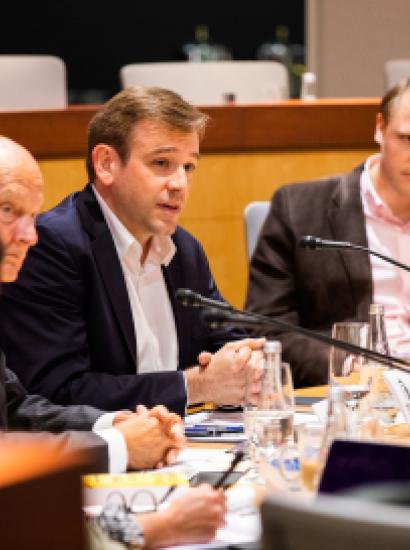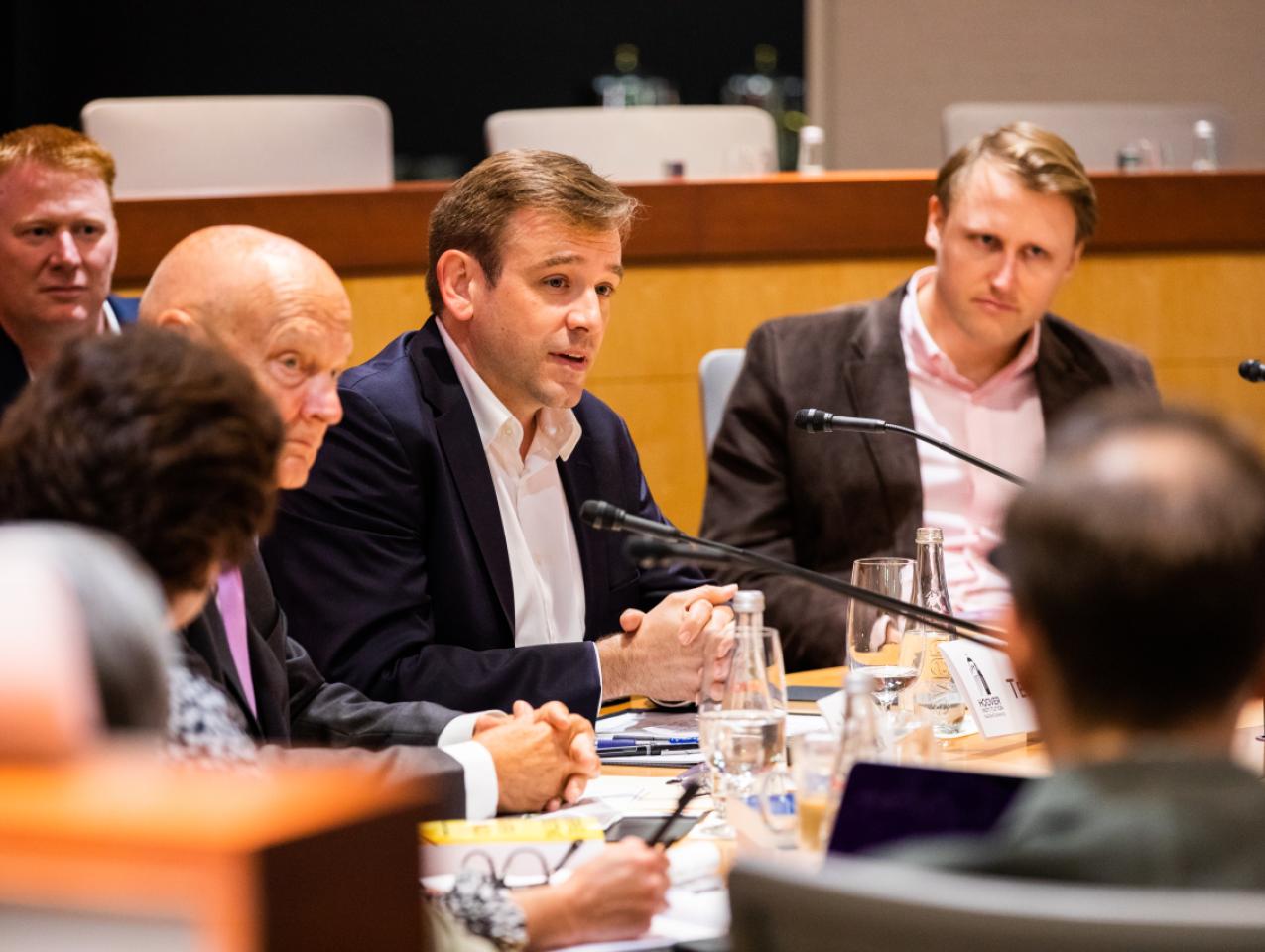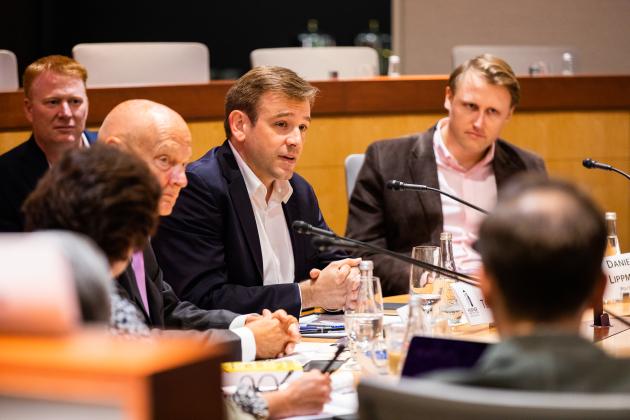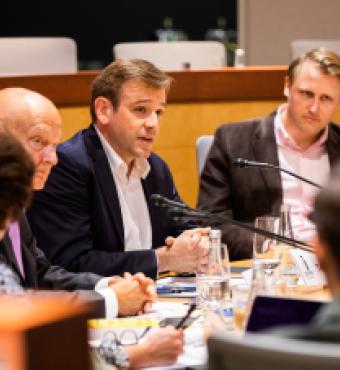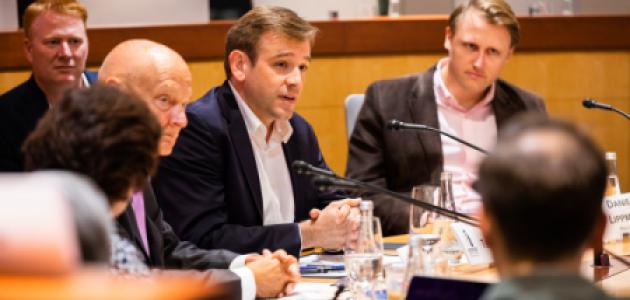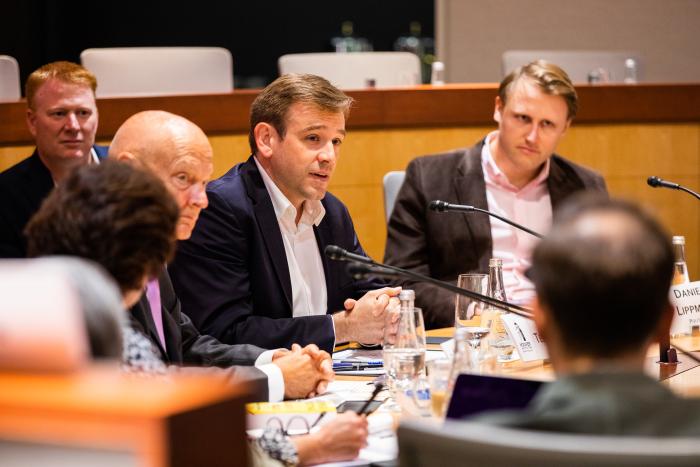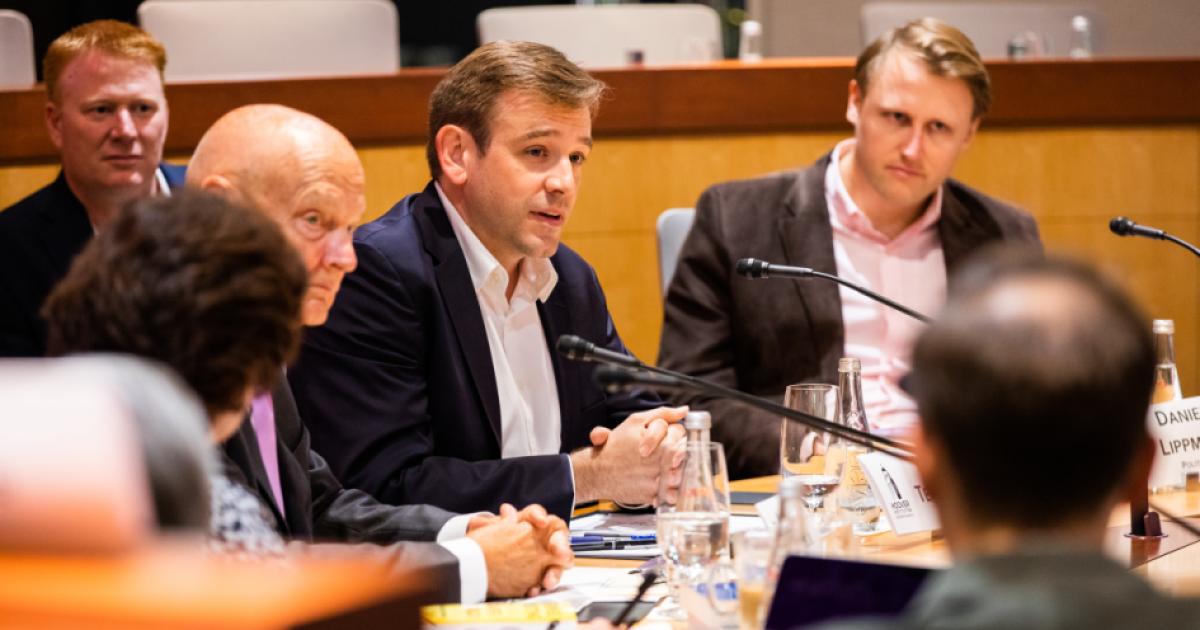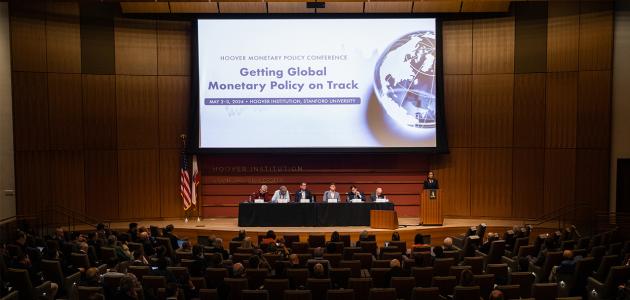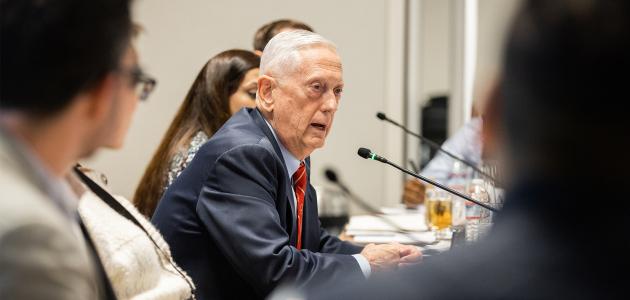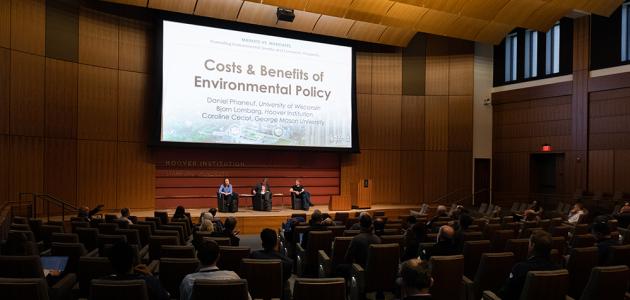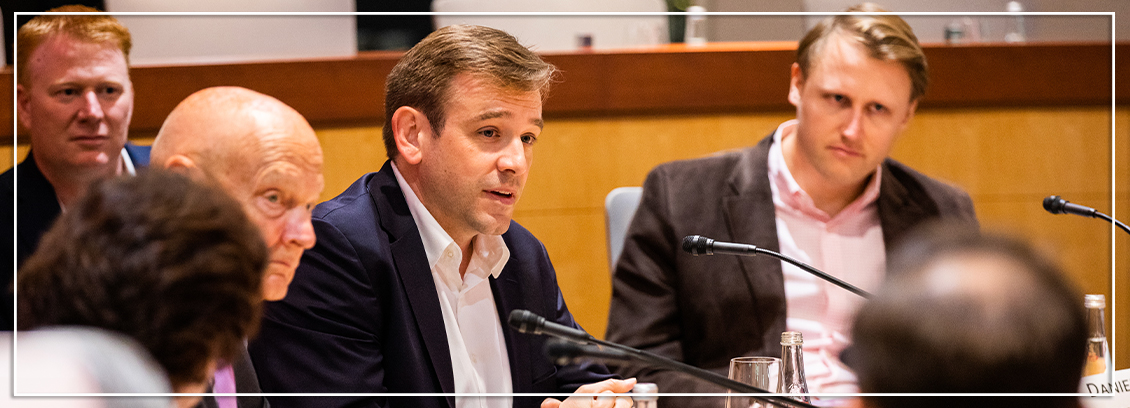
This edition of the Hoover Briefing on Confronting and Competing with China focuses on Taiwan’s new political leadership and the risk of confrontation between China and Taiwan; how China recalls its past; and how Washington needs to rethink its strategic approach to its ongoing rivalry with Beijing.
FEATURED ANALYSIS

Defining Ideas: New Leadership in Taiwan—the Challenges
Q&A with Kharis Templeman
Kharis Templeman is a research fellow and part of Hoover’s project on Taiwan in the Indo-Pacific Region. He spoke to Chris Herhalt about Taiwan’s next steps after its people elected Lai Ching-te to succeed Tsai Ing-wen as the island nation’s president. He also spoke about the risk of military confrontation between Taiwan and the People’s Republic of China, energy problems, and domestic policy challenges in Taiwan.
Chris Herhalt: President-elect Lai Ching-te has said his administration is willing to entertain “healthy and orderly” cooperation with China, but only if Beijing renounces any intention of using military force against Taiwan. Is this a workable approach?
Kharis Templeman: Well, it depends on what you mean by workable. Will it keep the peace? Potentially. That is the bottom line. That’s the most important thing. Will it re-establish formal channels of communication across the strait? No. I know that, because Tsai Ing-wen has said essentially the same thing ever since the first day she became president, and that was not good enough for Beijing. The general consensus in Taiwan is that if Beijing could not work with Tsai, they certainly won’t be able to work with Lai. If anything, he’s less moderate than she is on cross-strait issues.
Herhalt: Lai’s pick for vice president, Hsiao Bi-khim, was Taiwan’s representative to the United States. What do you think that choice signifies?
Templeman: It was a politically astute choice, for a couple of reasons. One is that Lai Ching-te himself does not have a high international profile. He doesn’t have much experience in international affairs, and he doesn’t speak a whole lot of English. That was a significant weakness of his profile as president, so Hsiao Bi-khim shored up that part of his image. The other reason it was politically astute is that Lai is from what is traditionally known as the deeper green wing of the DPP (Democratic Progressive Party), the one that is more nativist, a bit more skeptical of China, a bit more pro-independence. Hsiao Bi-khim is from the other wing of the DPP that’s much closer to Tsai Ing-wen. So, it was a kind of unity ticket in the sense that we had people from both parts of the party.
Hsiao is younger, has a very good international profile, and is a woman, so she complements some of Lai’s strengths. The DPP really struggled with the youth vote in this latest campaign, so this choice was an attempt to shore up Lai’s support with younger voters as well.
For more of this interview, click here.
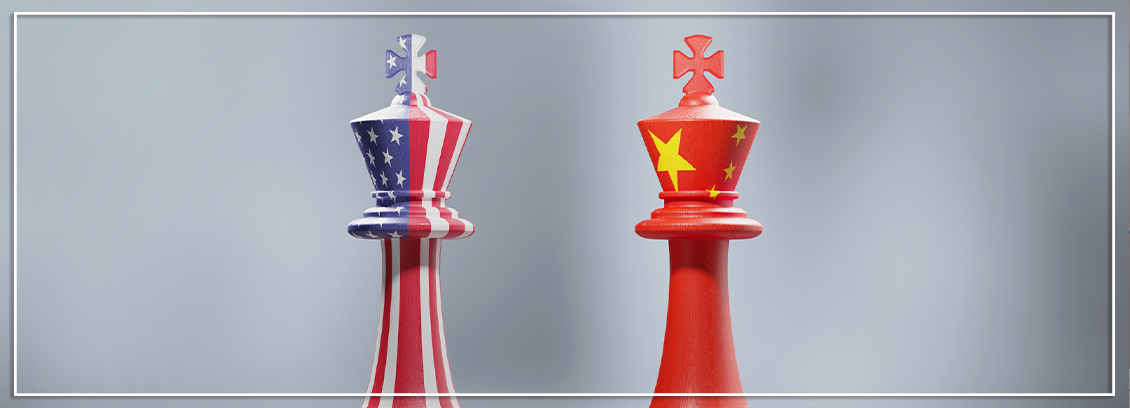
No Substitute for Victory: America’s Competition with China Must Be Won, Not Managed
In an essay published in Foreign Affairs on April 10, Hoover distinguished visiting fellow and China’s Global Sharp Power (CGSP) project participant Matt Pottinger teamed up with outgoing US representative from Wisconsin Mike Gallagher to argue for a major reset in the White House’s approach to China relations. They argue that the United States should no longer try to manage its competition with China but should instead aim to win it.
They cite China’s ongoing expansion of nuclear and conventional forces and its support for authoritarian regimes around the world. To win this competition, the authors declare, the United States should turbocharge innovation in its defense industry, deepen trade relationships with friendly nations, employ more export controls in key technology areas, reverse its crisis in military recruitment, and encourage everyday Americans to contribute to the fight.
They do acknowledge President Biden’s decision to maintain Trump-era tariffs on Chinese exports, investment restrictions, and efforts to build Asian regional security bodies such as AUKUS and the Quad as positive steps. But they say the administration has fallen short in other matters, specifically citing the decision not to disclose in the 2023 incident that a Chinese high-altitude spy balloon was floating into Montana until residents of that state spotted it themselves.
Click here to read the essay.
HIGHLIGHTS
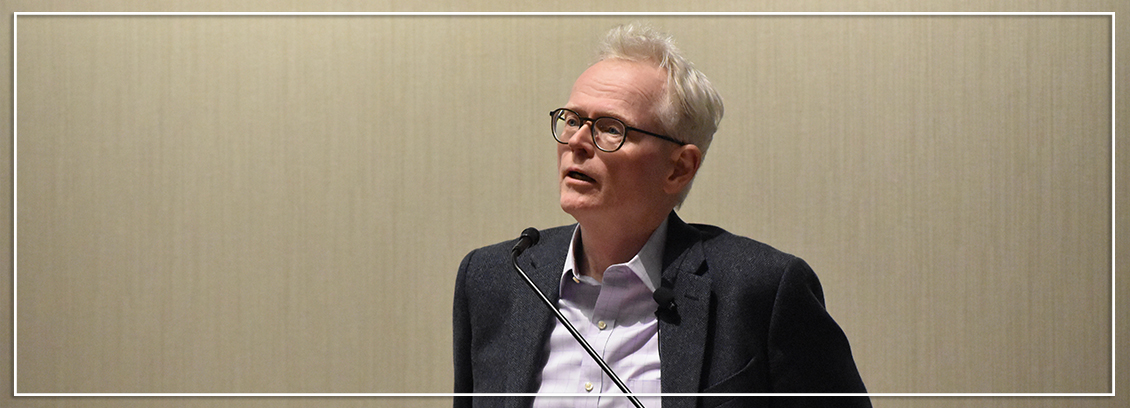
China’s Underground Historians and Their Battle for the Future
Distinguished research fellow and CGSP cochair Glenn Tiffert joined journalist Ian Johnson and Orville Schell, director of the Center of U.S.-China Relations at the Asia Society, in Hoover’s Stauffer Auditorium on March 18 to speak about Johnson’s book, Sparks: Underground Historians and their Battle for the Future. The presentation dealt with how a collective of writers, filmmakers, and artists are defying the Chinese Communist regime to preserve an independent record of the country’s history. They use digital technologies and more traditional methods to avoid China’s surveillance apparatus and challenge the country’s censors.
Click here to watch the program.
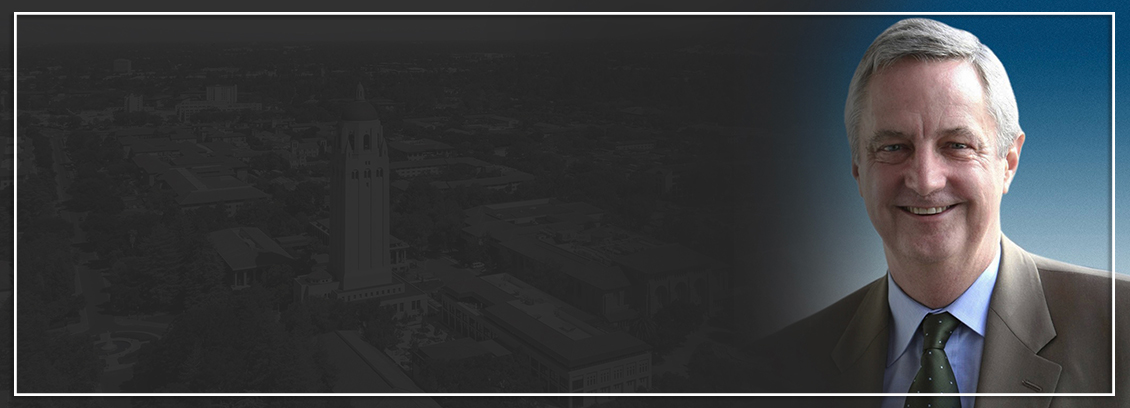
Eminent Scholar on Contemporary China David Shambaugh in Residence at Hoover
Distinguished Visiting Fellow David Shambaugh is in residence at Hoover on the Stanford campus. His visit began in February and will extend to June 2024. Professor Shambaugh is an eminent political scientist at George Washington University and director of its China policy program. While in residence at Hoover, he has been completing his next book, on America’s engagement with and disengagement from China.
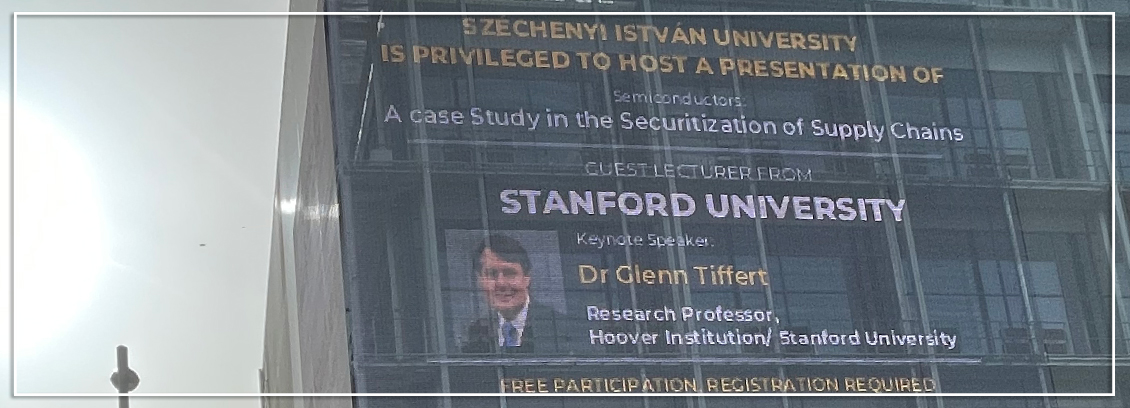
A presentation featuring CGSP cochair and Hoover Institution distinguished research fellow Glenn Tiffert is advertised on the side of a building in Gyor, Hungary.
CGSP Cochair Glenn Tiffert Continues Global Travel
In March and April 2024, Glenn Tiffert continued his travels across Europe to engage with US allies and partners on the security and integrity of their research and innovation ecosystems, and on national policy towards China. Over the last year, Tiffert has met senior government and civil society stakeholders in nearly twenty nations. Safeguarding academic, corporate, and government research and innovation from foreign interference and misappropriation is one of CGSP’s core priorities.
Fellow Spotlight: Kharis Templeman

Kharis Templeman is a research fellow at the Hoover Institution and part of the project on Taiwan in the Indo-Pacific Region. Templeman is a political scientist with research interests in Taiwan politics, democratization, elections and election management, party system development, dominant party systems, and politics and security issues in Pacific Asia, among other topics. Templeman is also a lecturer in Stanford's Center for East Asian Studies, where he teaches a course on Taiwan security issues.







